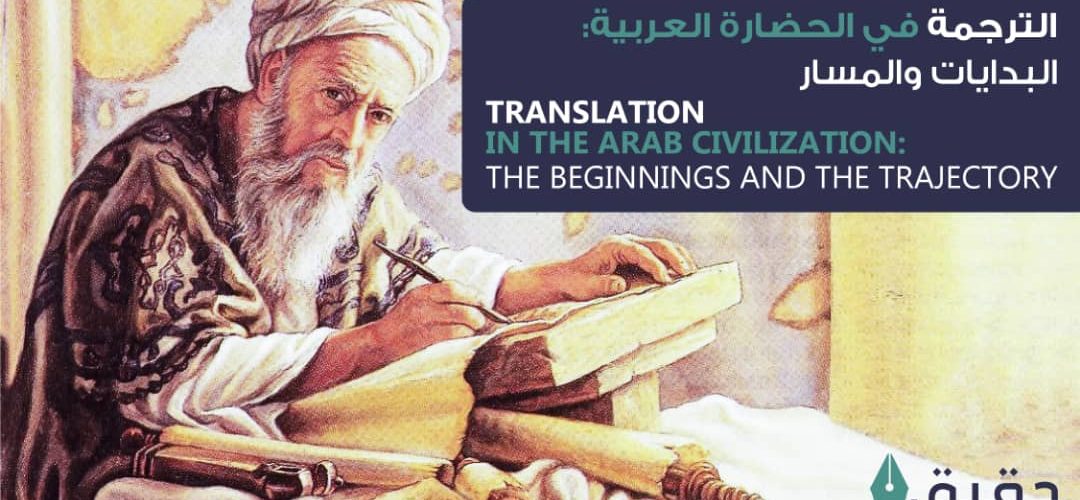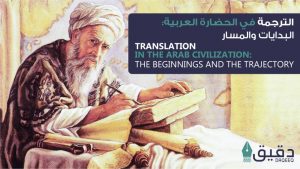Category: History Written by: Daqeeq Date: 20 Oct 2021
Daqeeq says….
Translation in the Arab civilization: the beginnings and the trajectory
We can cite countless examples of cases when translators and interpreters played a focal point in the evolution of the Arab civilization dating back to pre-Islamic times.
According to scholar Hussein Abdo Rababah from Al-Imam Muhammad Ibn Saud Islamic University (2015), the Arab nation in the times preceding the advent of Islam was divided in terms of loyalty between the two super powers at the time, the Roman in the West and the Persians in the East. Any communications with these powers or their representatives needed some form of translation.
The Arabs of Mecca, which gained later an unprecedented importance as the spiritual capital of the expanding Arab state, used to travel to Syria in the summer, and Yemen in the winter for trade, and they needed a translation service when dealing with non-Arab vendors and customers.
The history of translation in the Arab world, as an area lying at the heart of the world and serving as a bridge between regions and cultures, is a point in case signifying the importance of this profession across history. It is a story of the transfer of knowledge and communication, the very two factors that lead to universal prosperity and world peace.
The earliest records of Arabic translation efforts date back to the second century AD, at the hands of Syrians, basically the works of Greek philosophers, such as Aristotle.
Summing up his research, Rababah says the Arab translators’ contribution to the world civilization has been done through transferring from a wide variety of resources, including China, India in the East, and Greece, the Roman empire in the west into the melting pot of rising Islamic state during the apex of the Arab-Islamic civilization, while professional translators helped transfer the accumulating Arab achievements in the world of knowledge into Europe, which was shedding off the traces of the dark ages in the medieval age.
Moreover, there is “evidence that the transfer was not limited to sciences such as chemistry, astronomy, and botany among other branches of science. It has rather extended to include arts and literature; Arab translators have translated fiction and stories from India and East Asia to Europe and the West.”
The historical stages can be divided into seven, starting with the pre-Islamic era, the dawn of Islam, the Umayyad and early Abbasid era, including the Islamic presence in Spain, the reverse translation movement from Arabic into European languages in the medieval ages, and the Arab renaissance era, leading to modern times.








No comments yet.